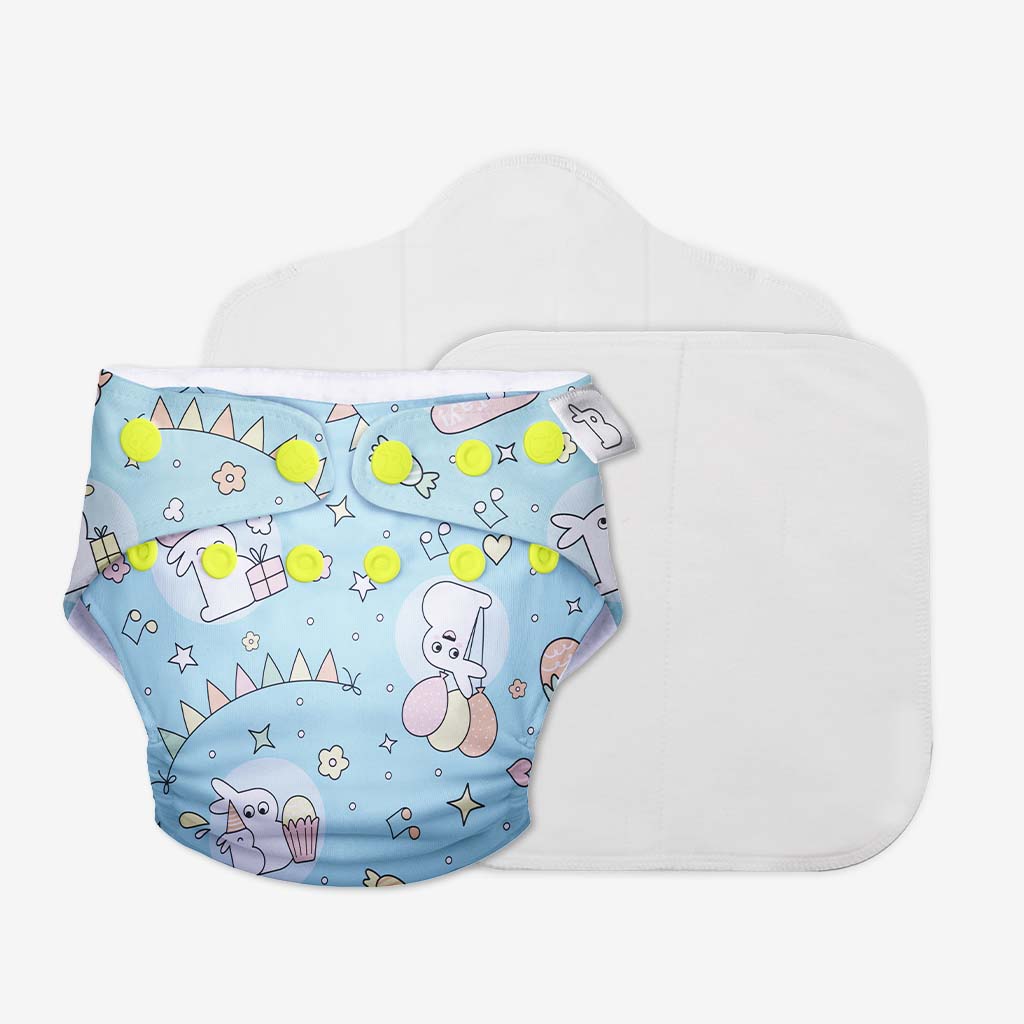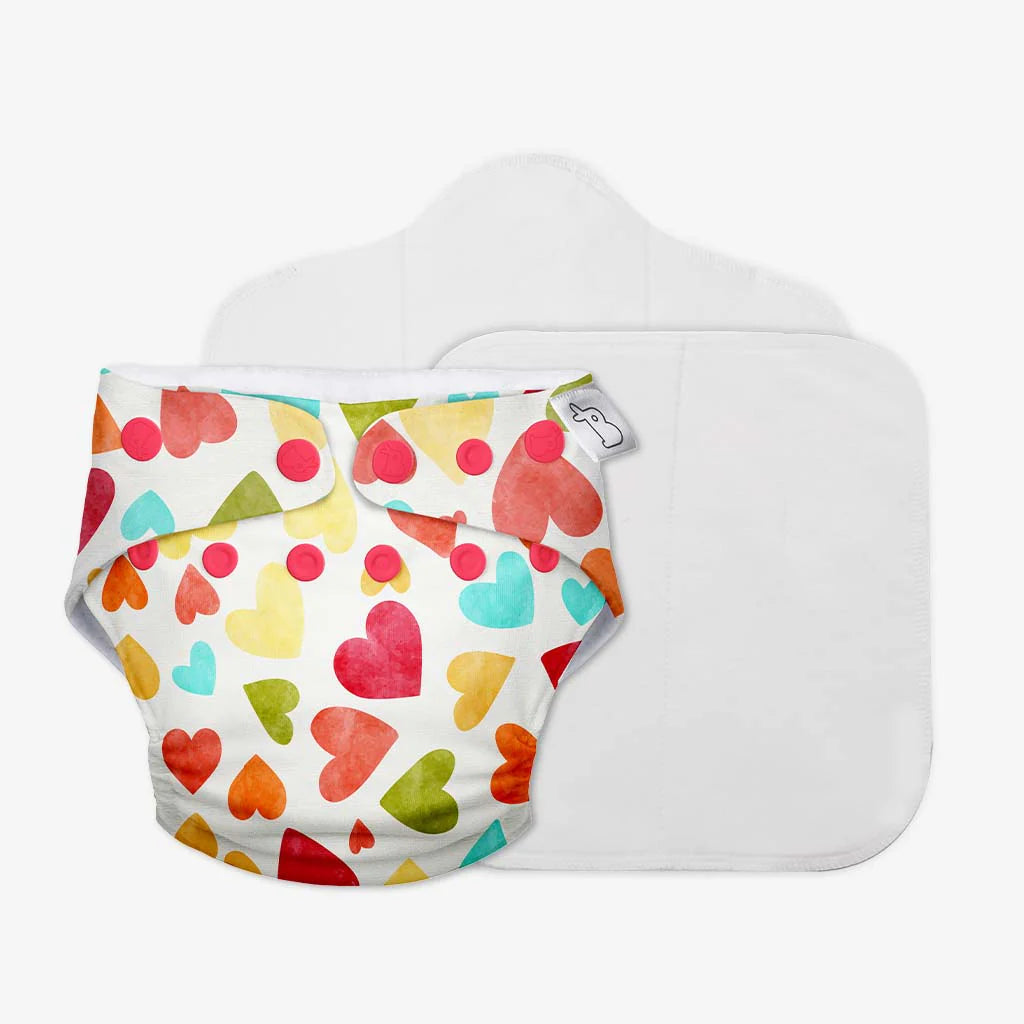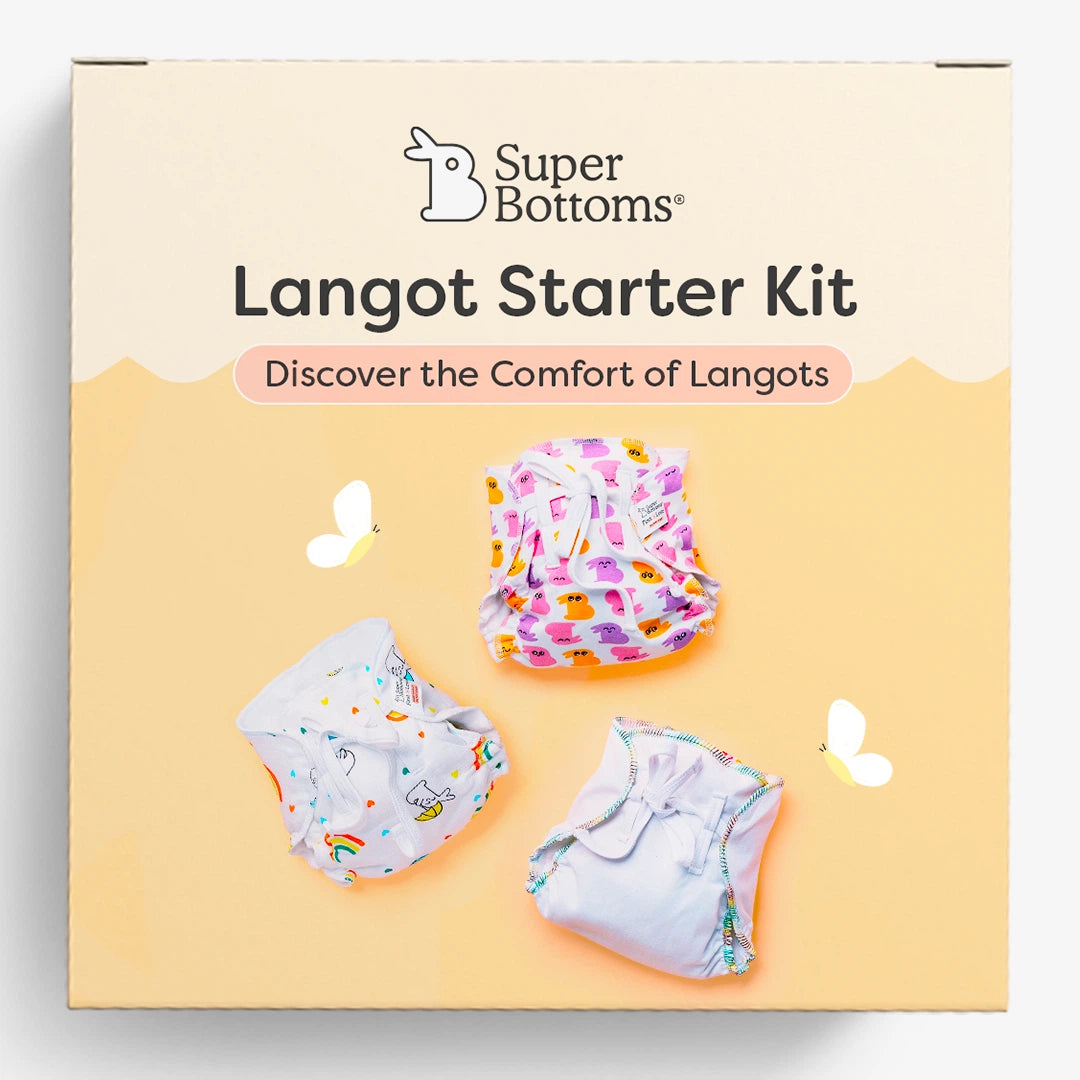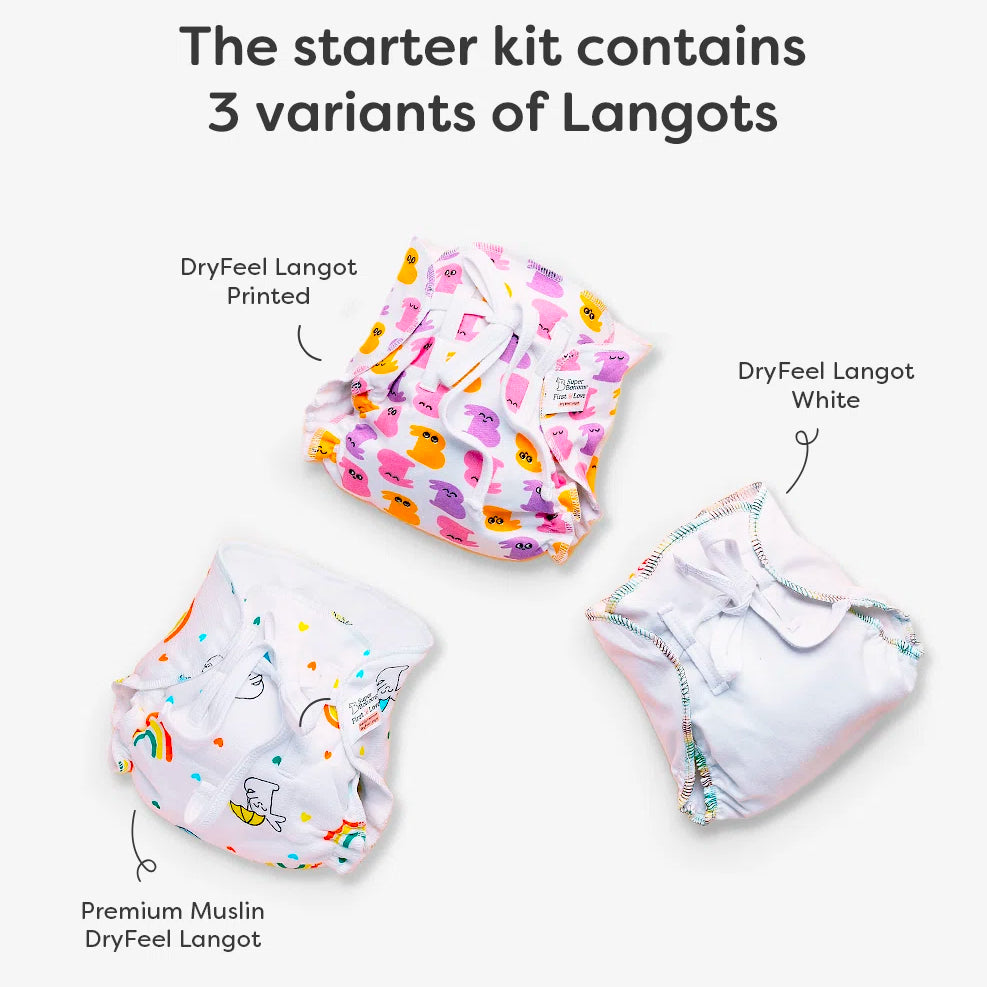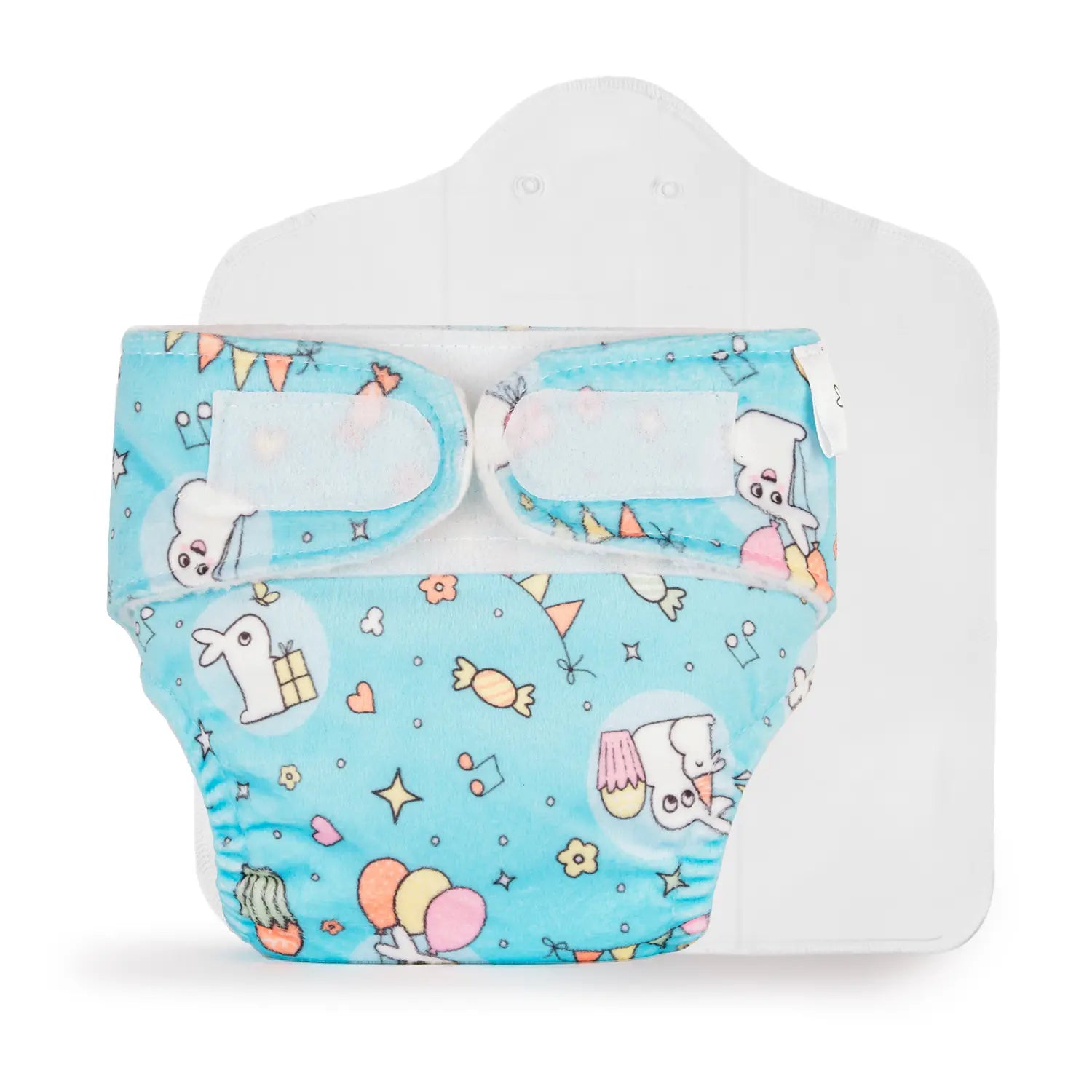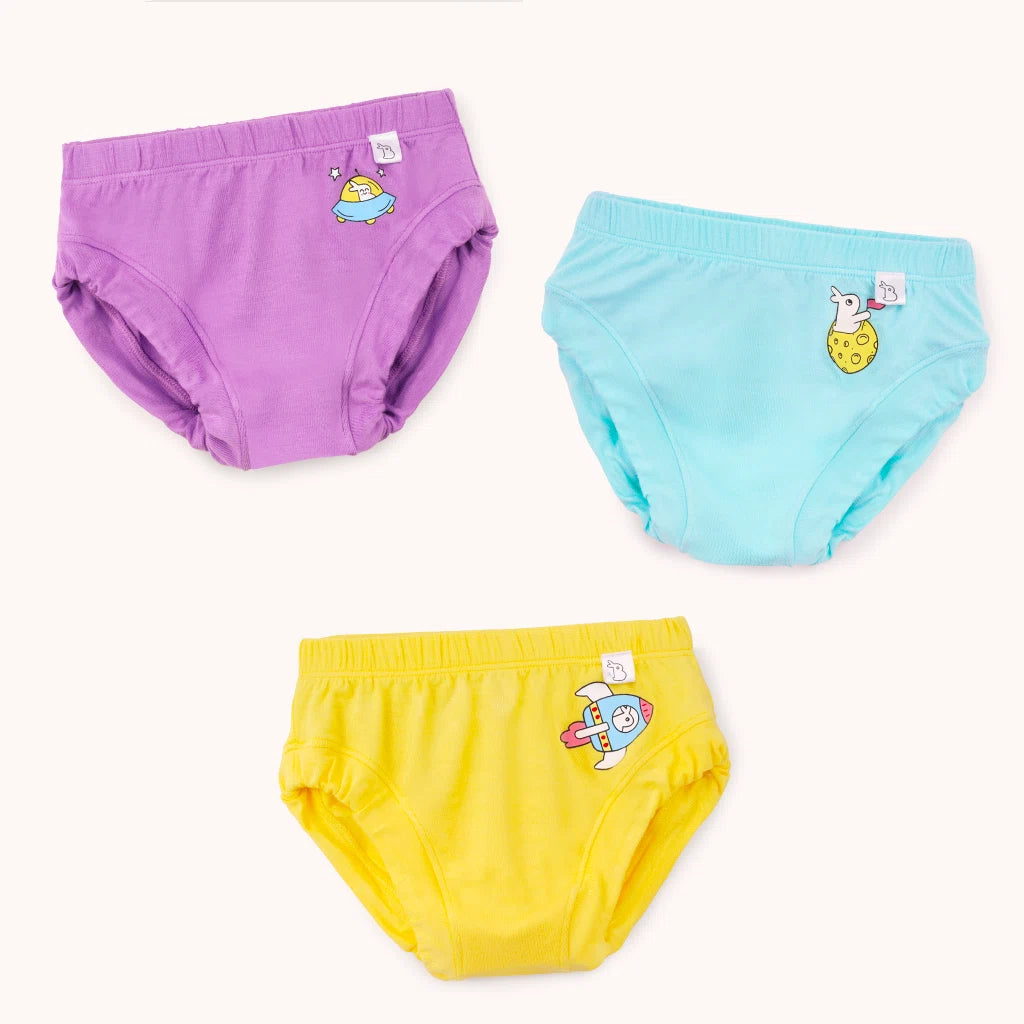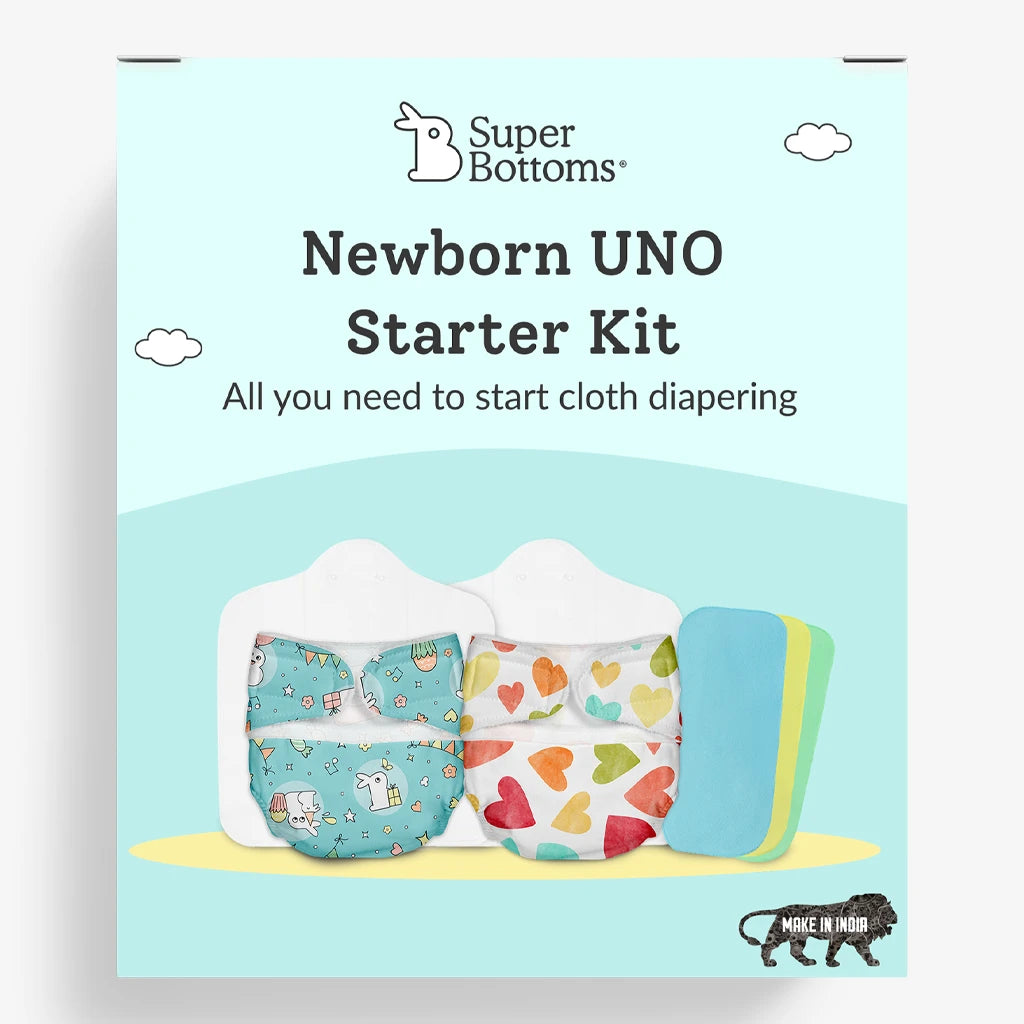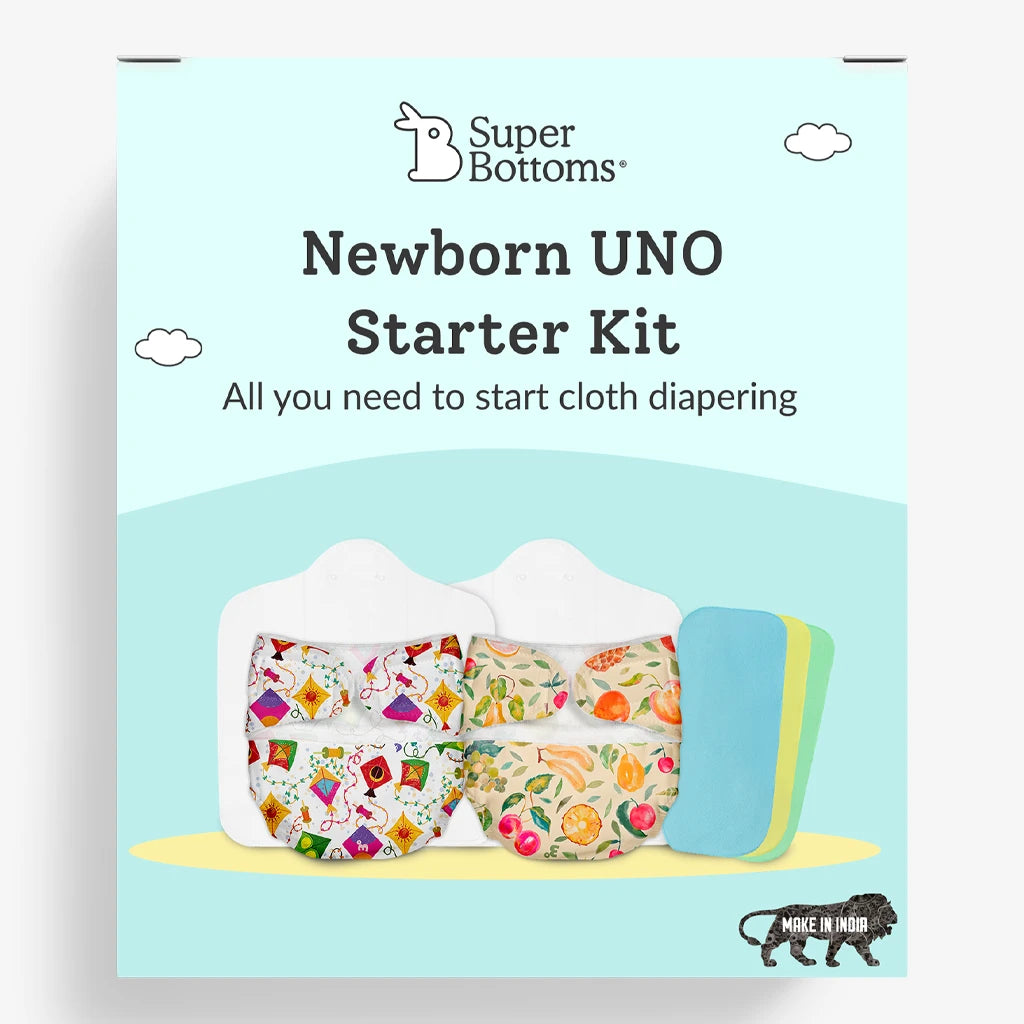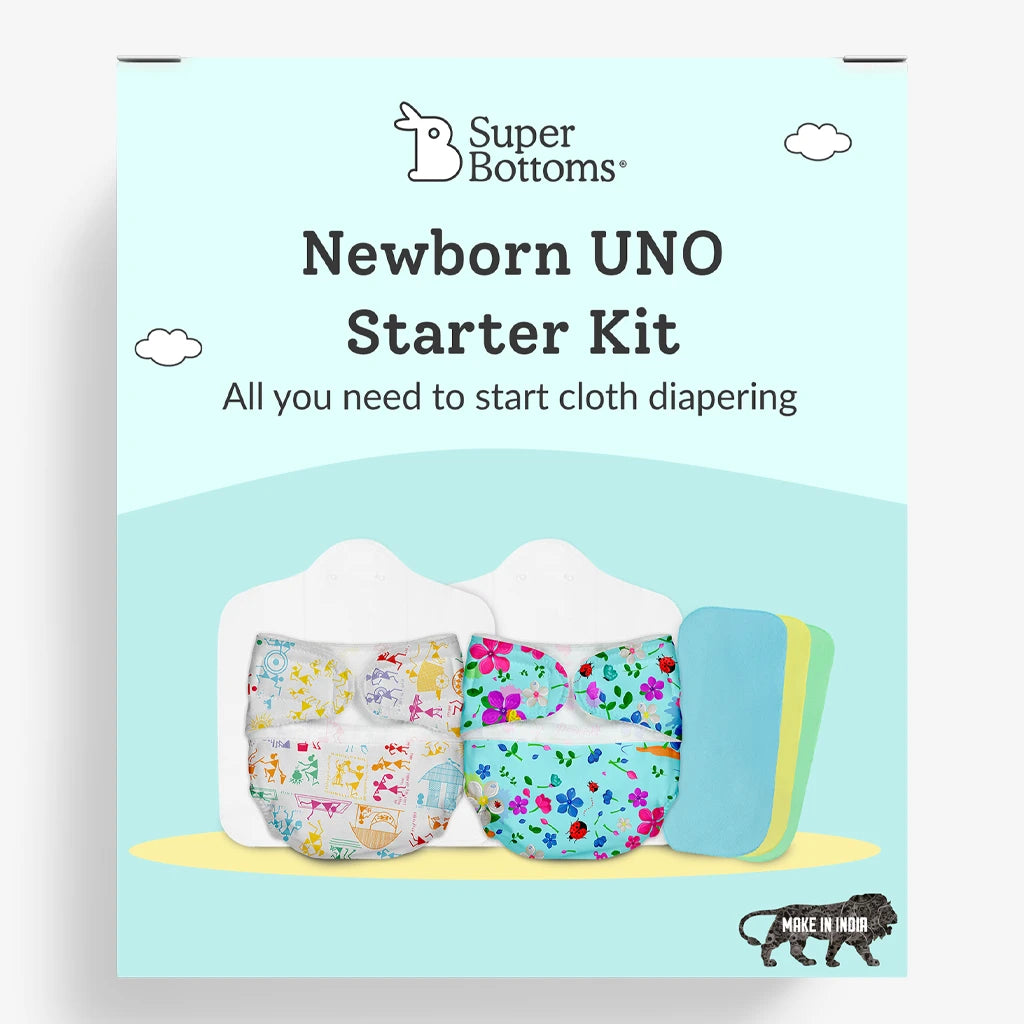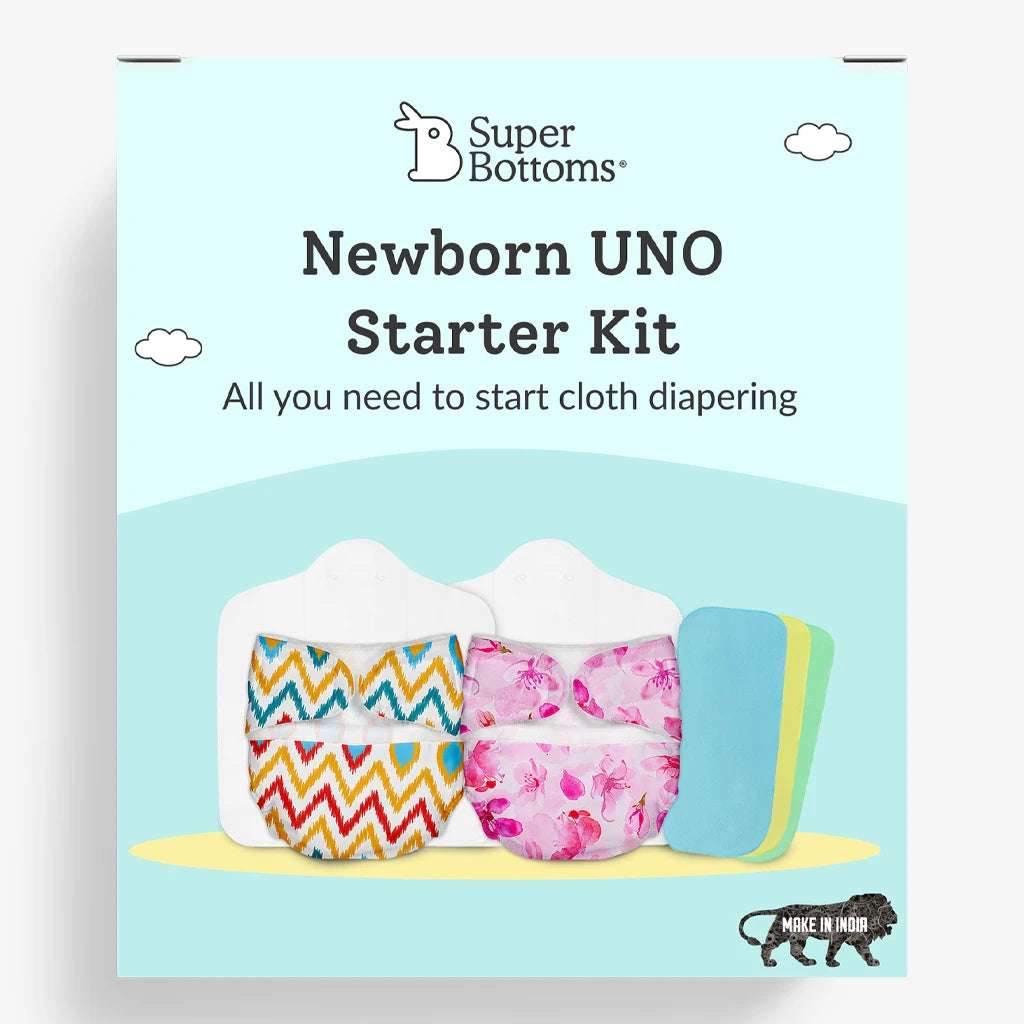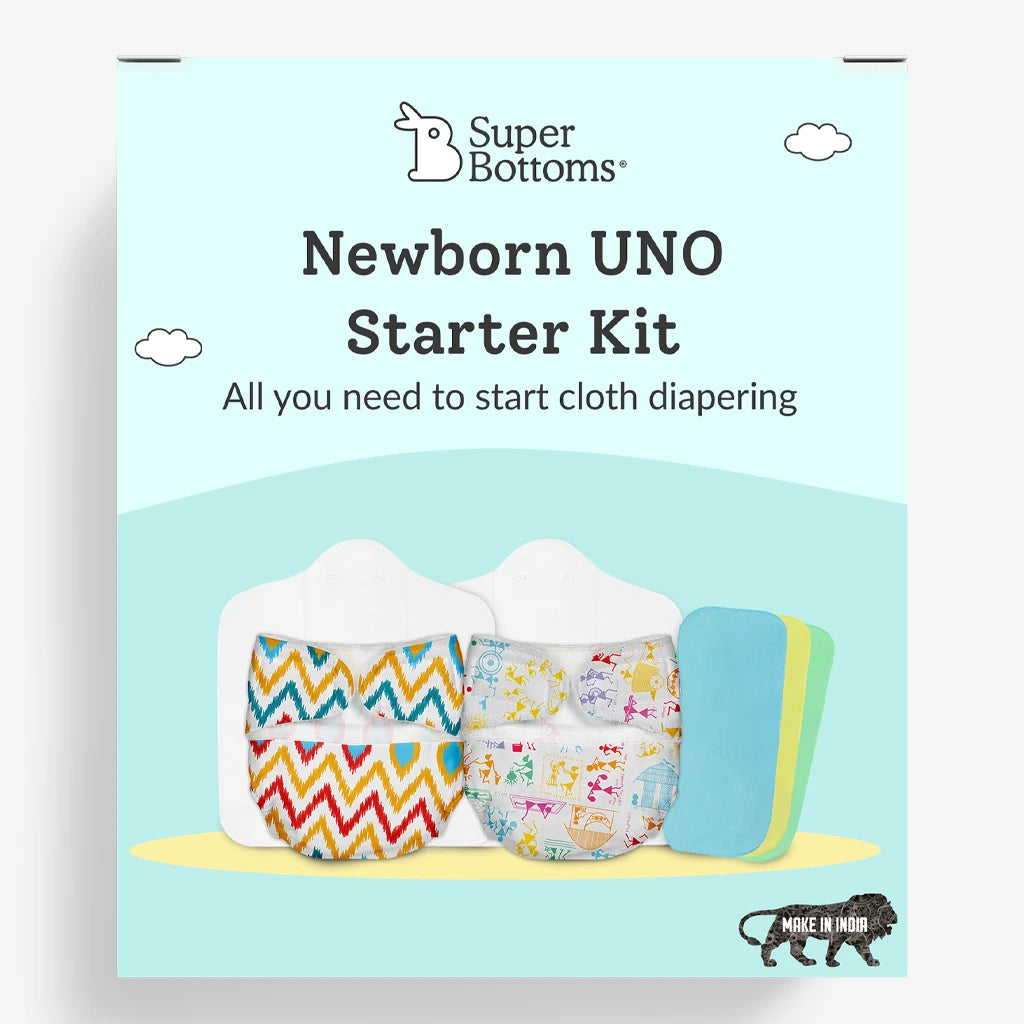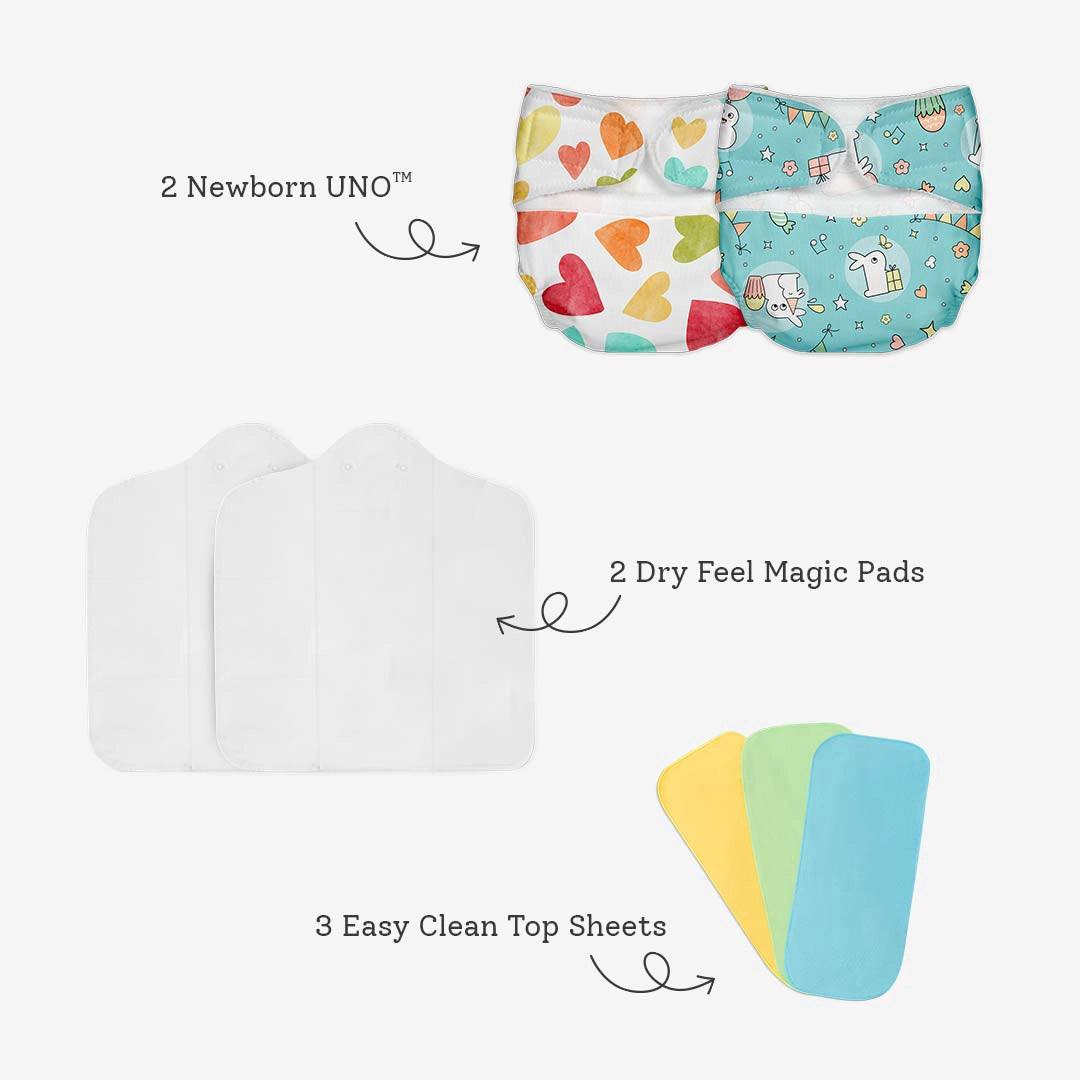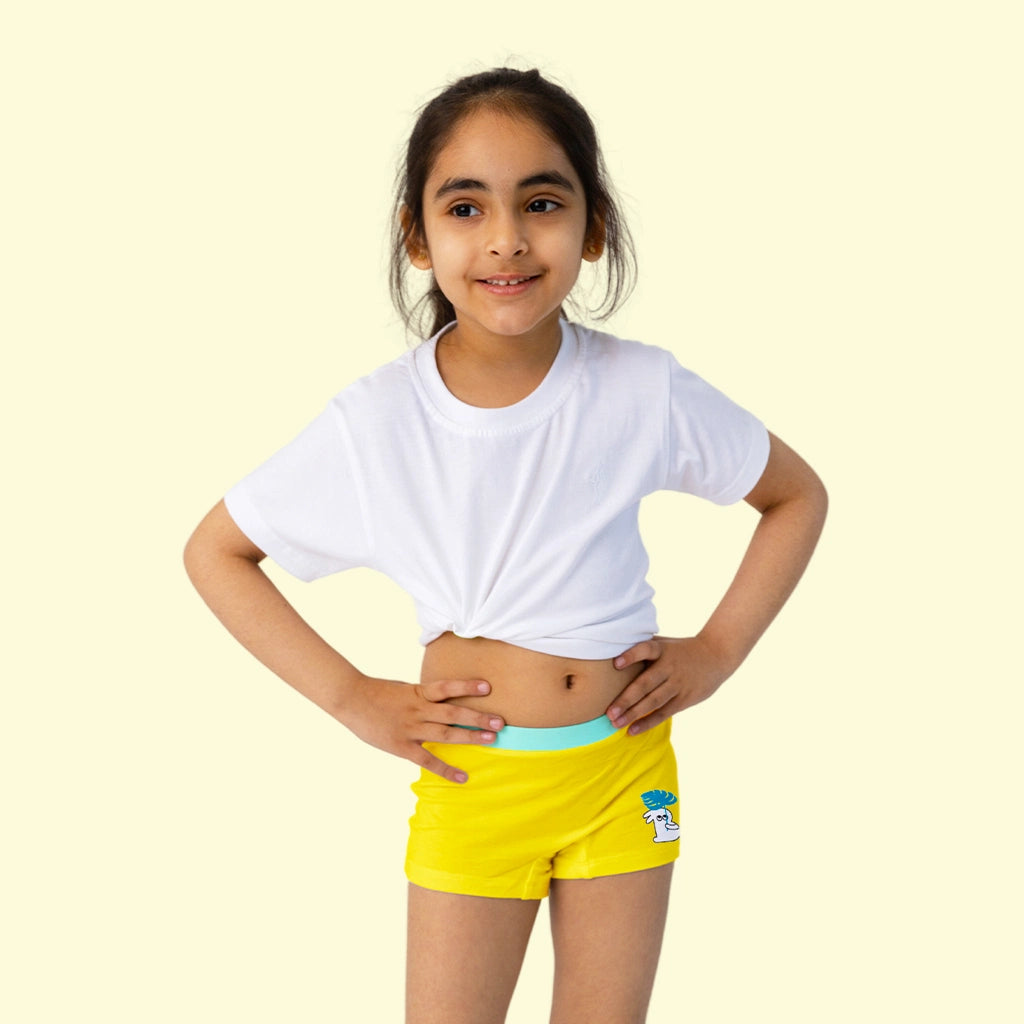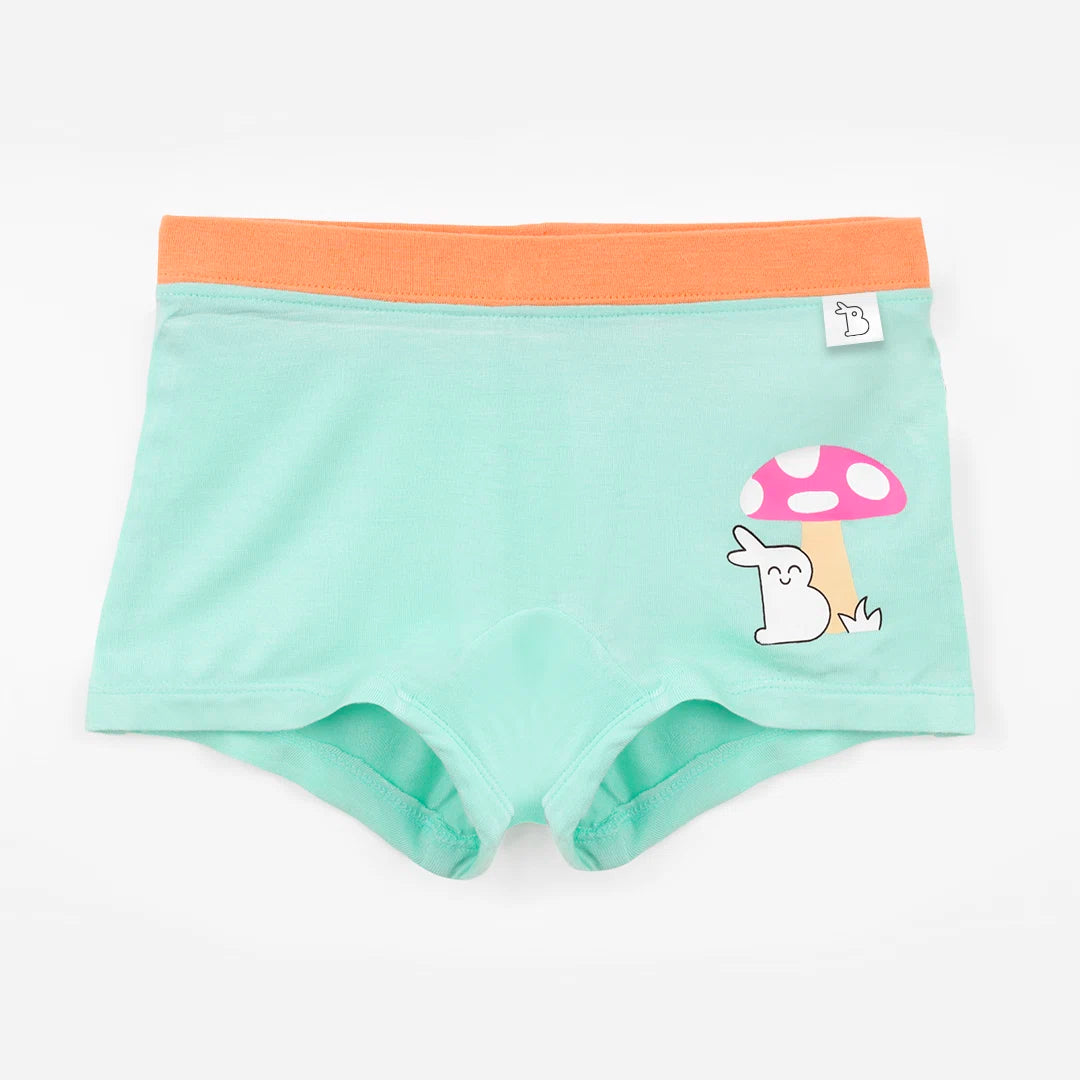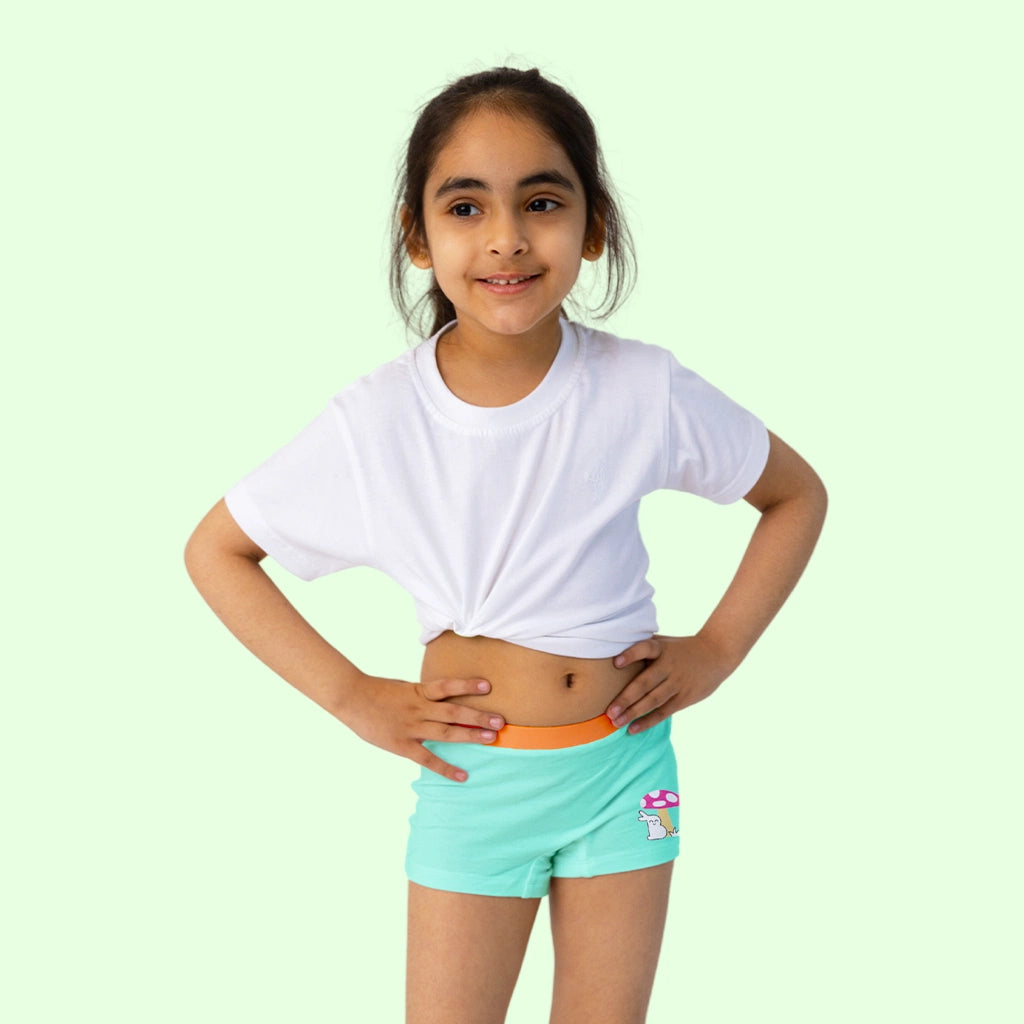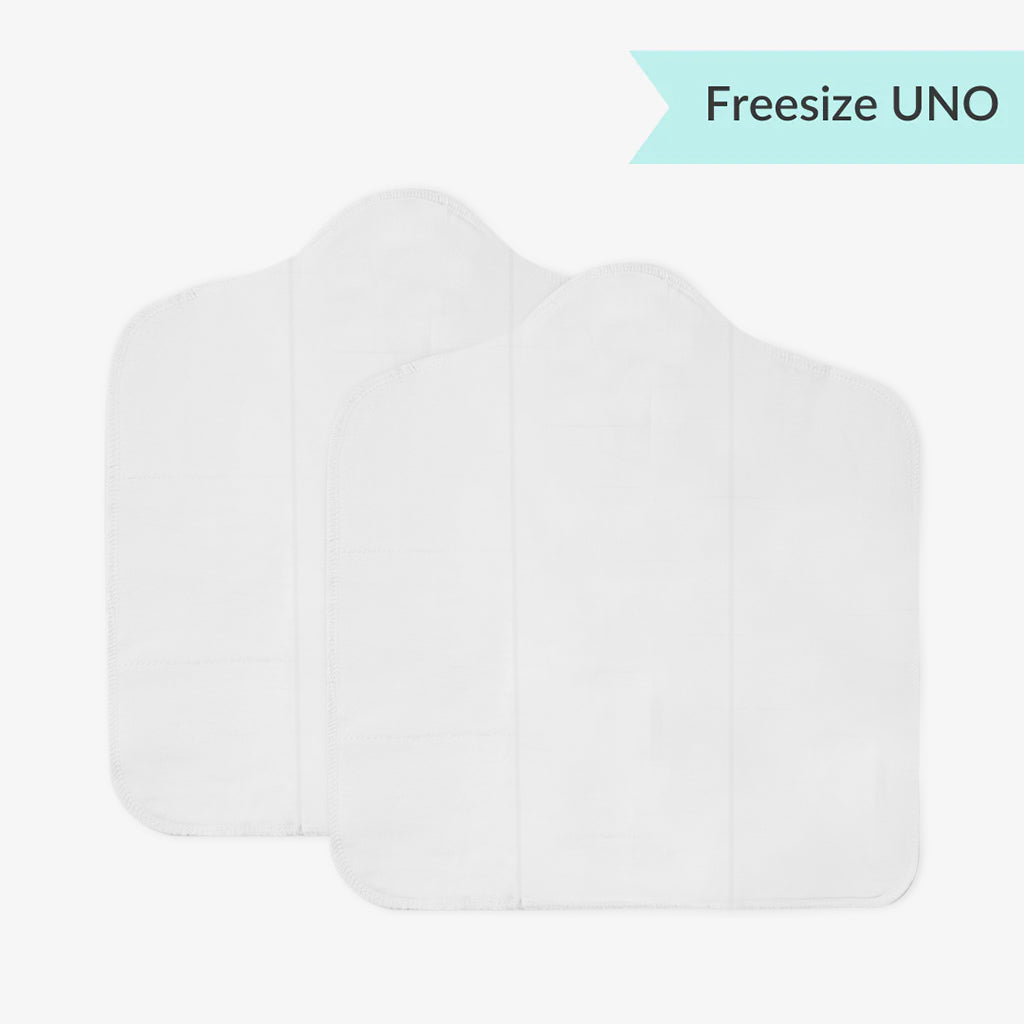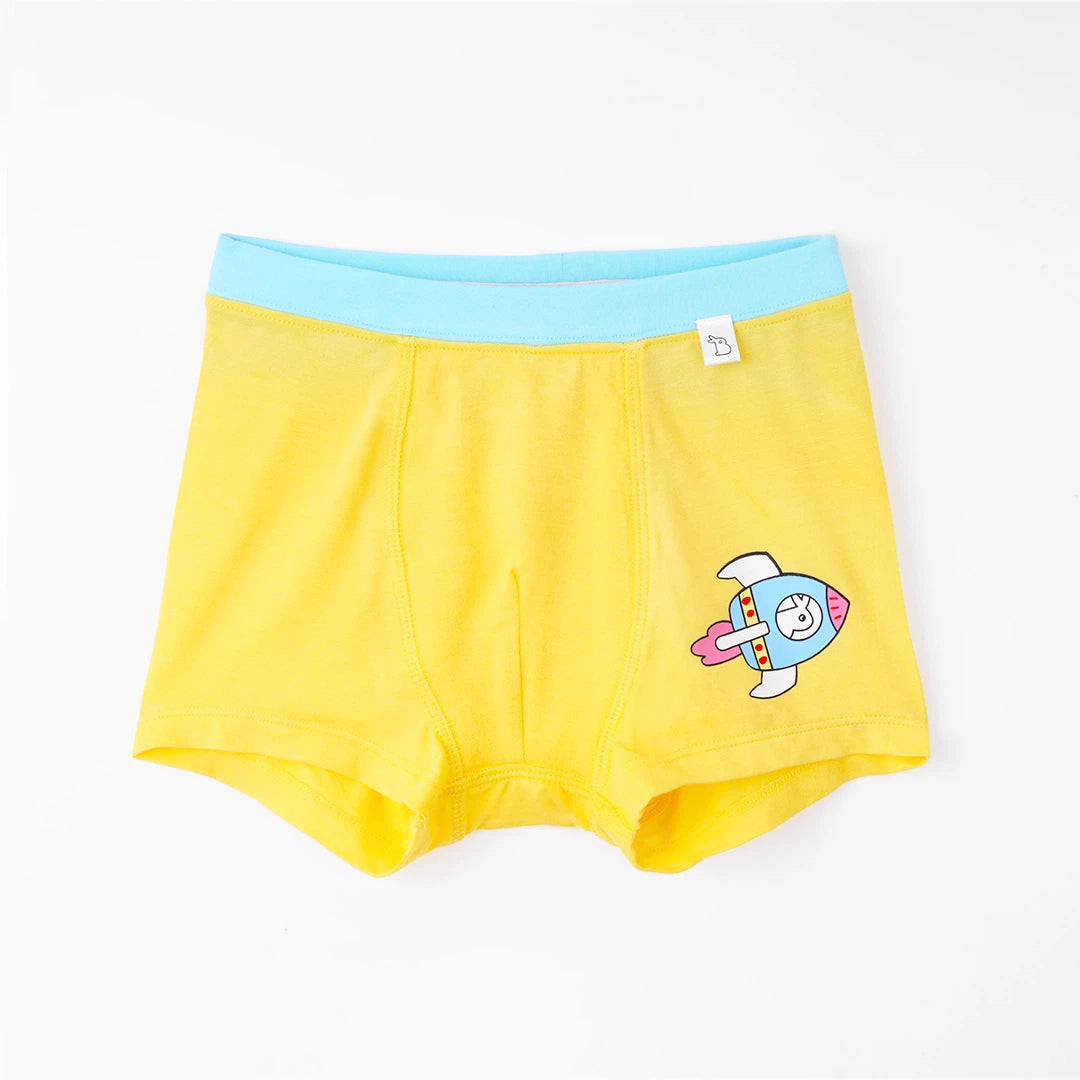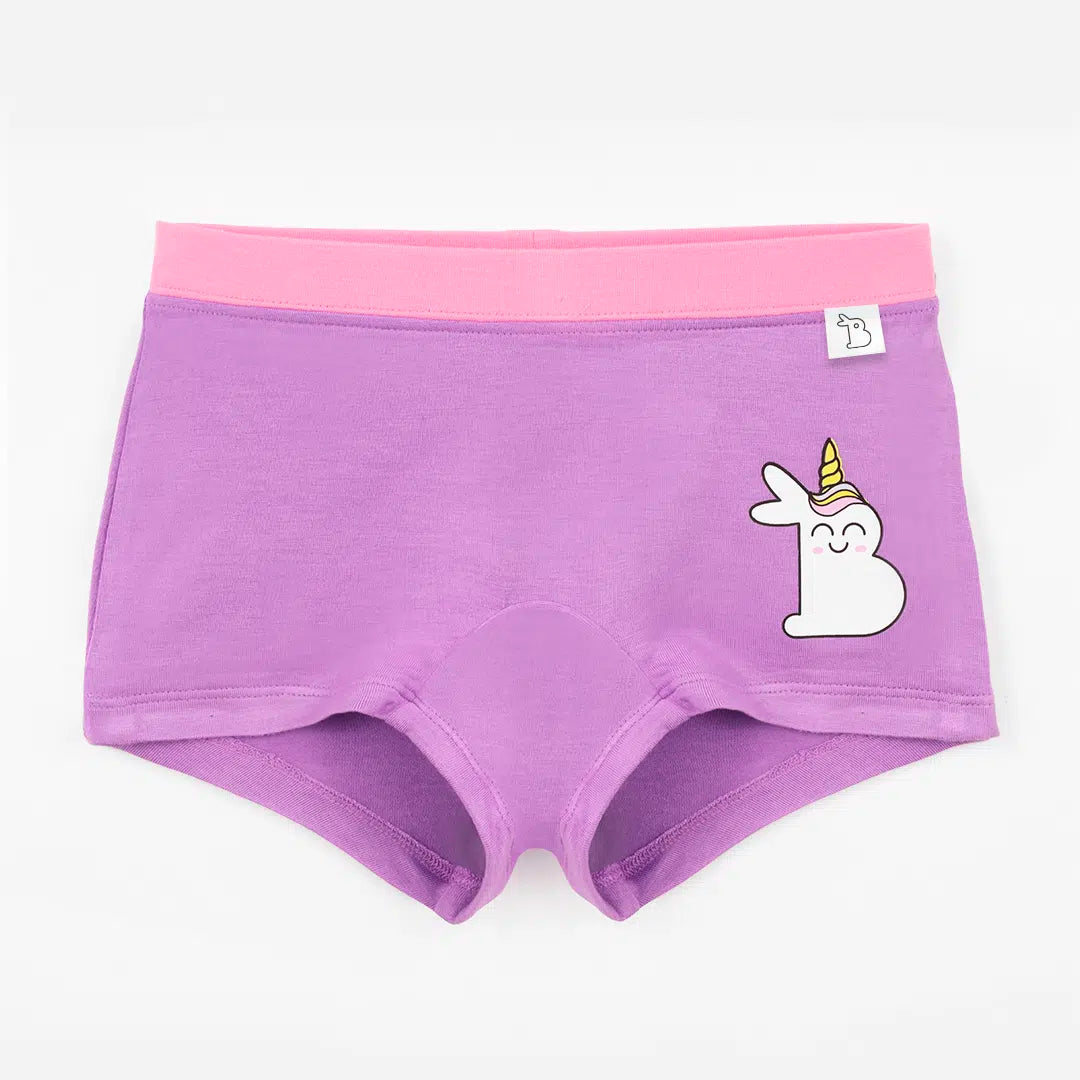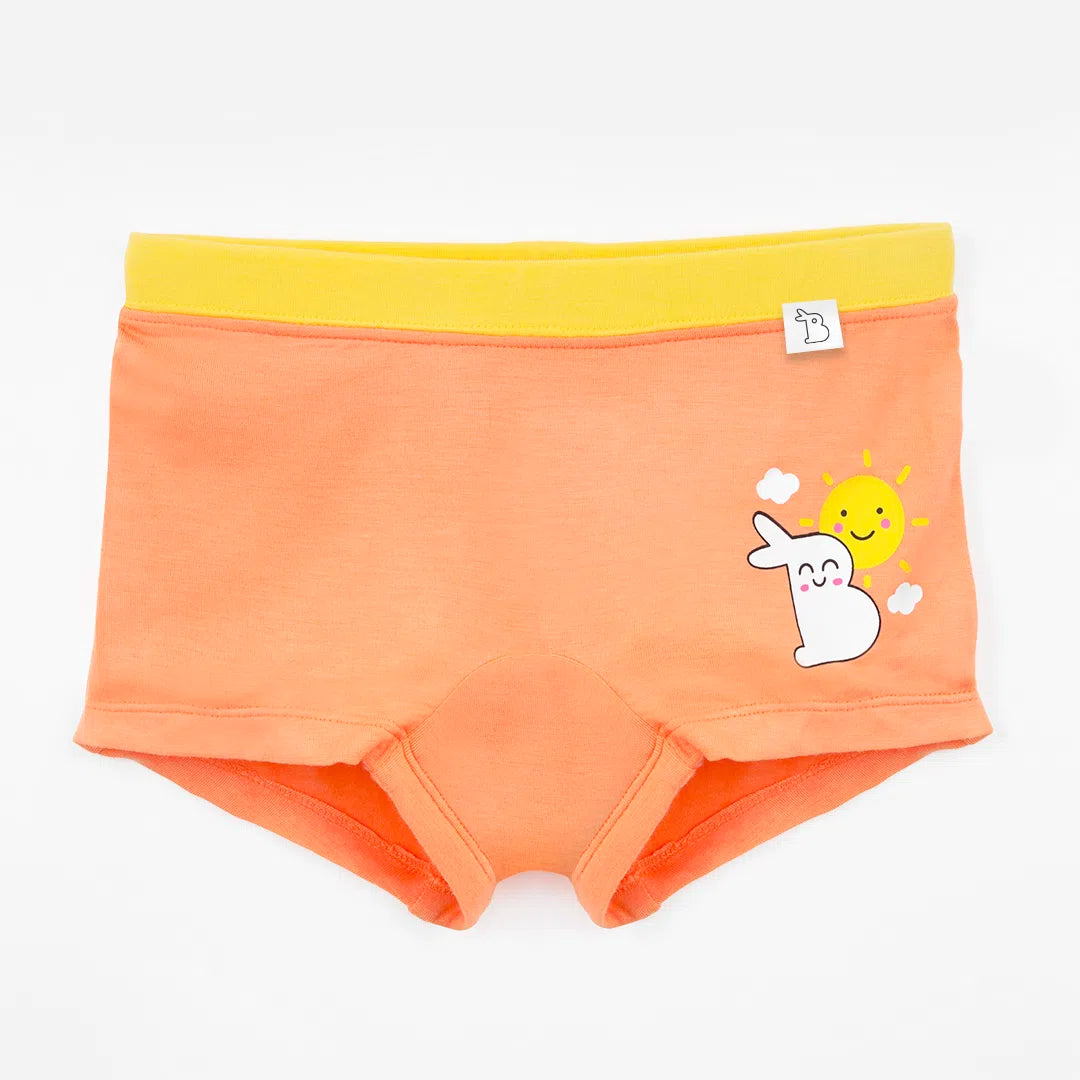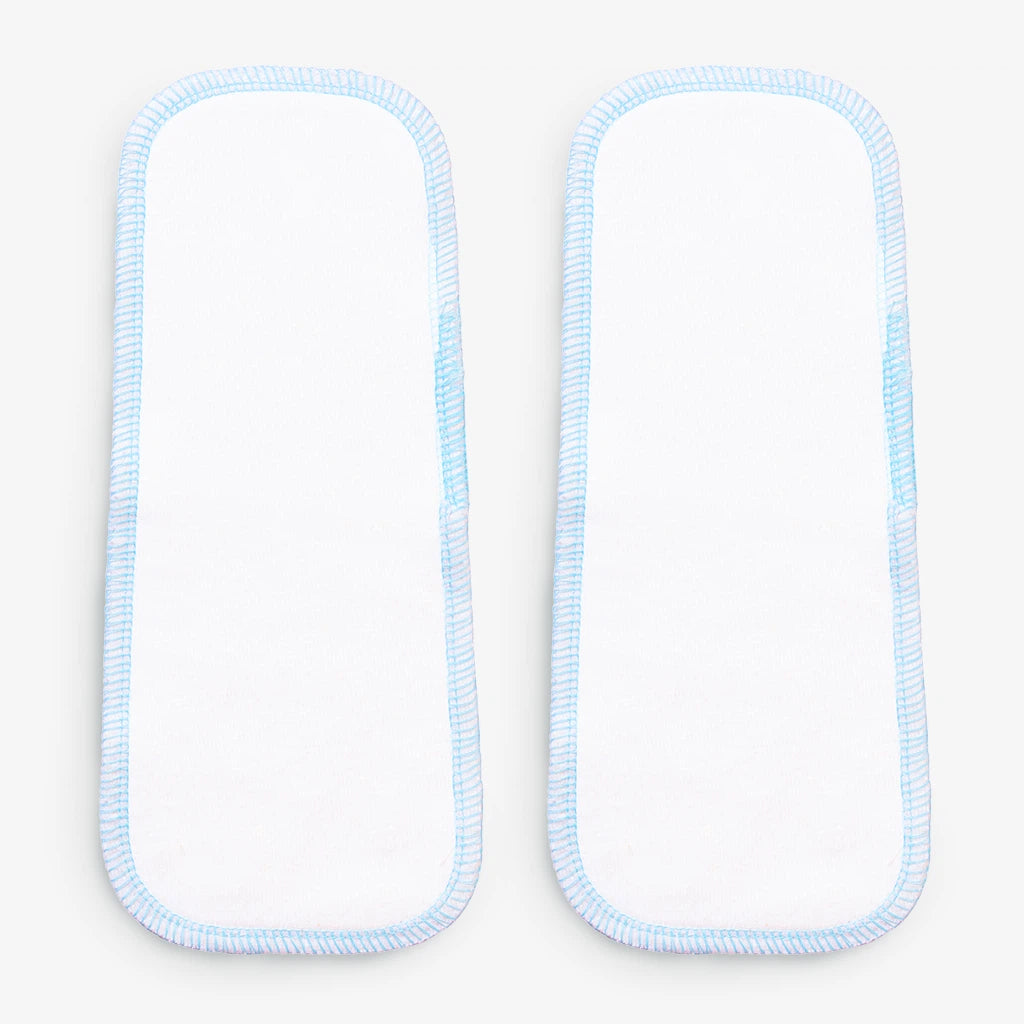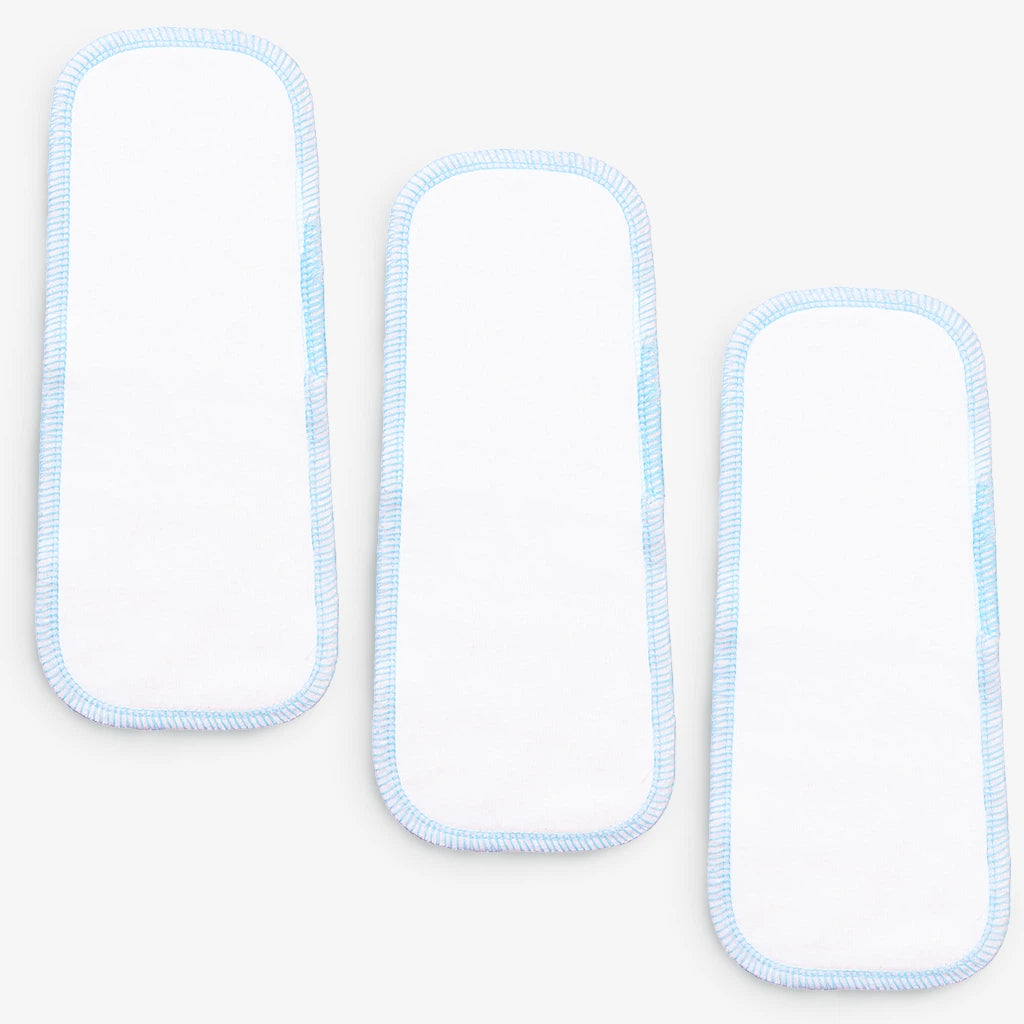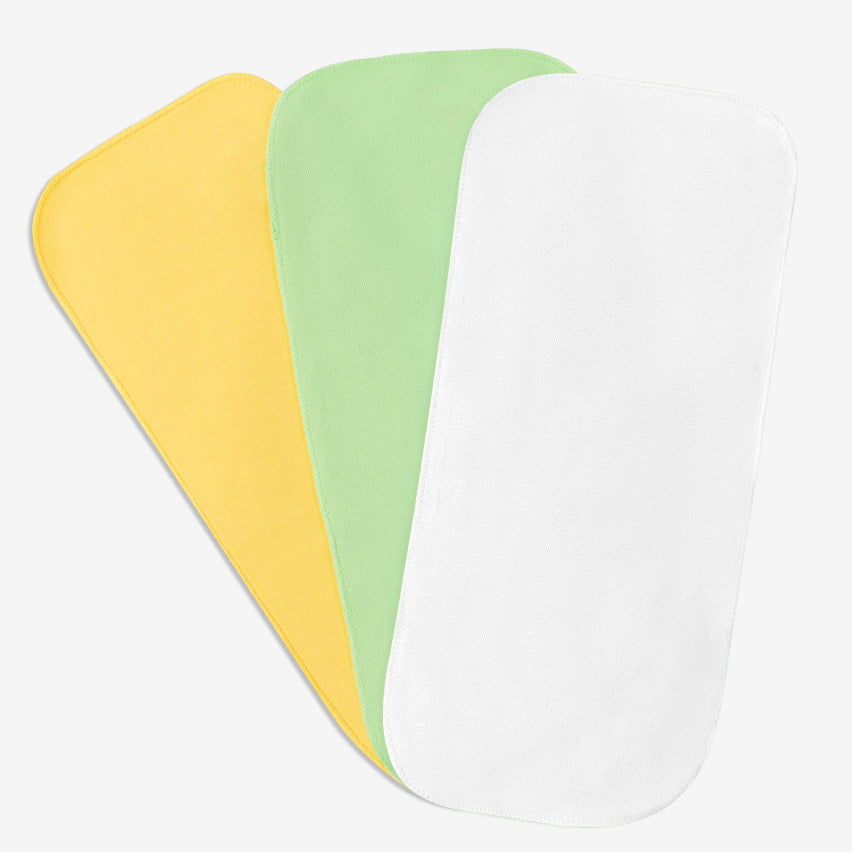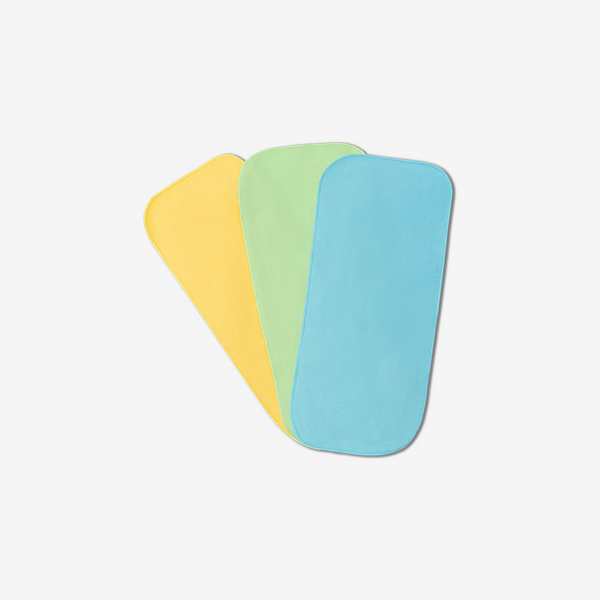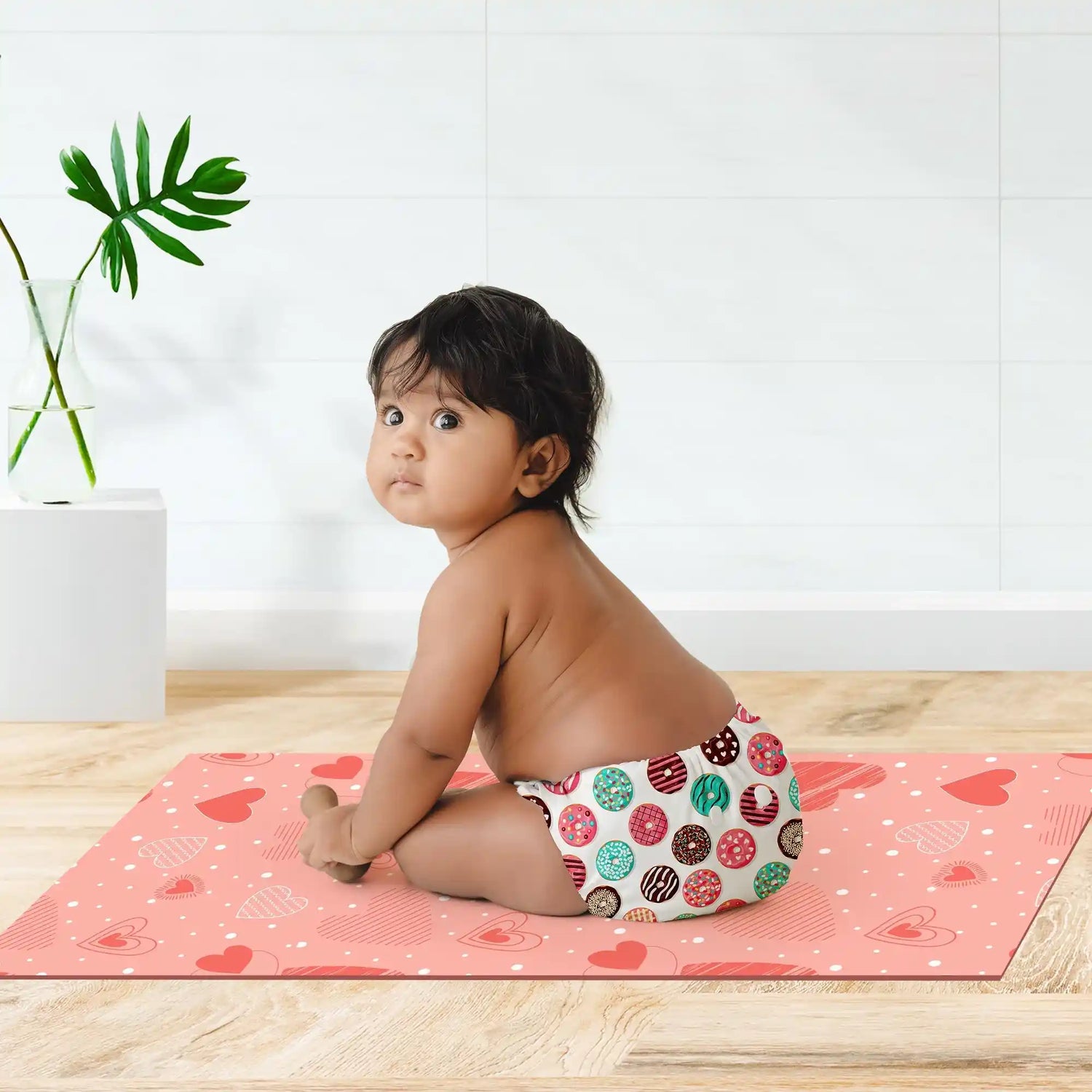- Introduction
- Importance of a Balanced & Healthy Pregnancy Diet
- 5 Must-Haves in Your Pregnancy Food Chart
- Key Takeaways
- FAQs
- Message from SuperBottoms
Pregnancy is a time of immense change, both physically and emotionally. While busy creating a life, your body needs extra nutrients to support your baby's growth and development. That's where a balanced and nutritious pregnancy diet comes in.
This isn't about complicated meal plans but rather focusing on nutrient-rich foods that pack a punch. We're breaking down 5 must-have food items that every expectant mother should include in their diet. From leafy greens bursting with folate to lean proteins for building tiny muscles, these powerhouses will fuel your body and nourish your little one.
With this article by SuperBottoms, get ready to discover simple ways to incorporate these essential foods into your daily routine and make healthy eating a delicious part of your pregnancy journey.
Importance of a Balanced & Healthy Pregnancy Diet
A balanced and healthy pregnancy diet isn't just about managing your weight—it's the foundation for a healthy pregnancy and a thriving baby. Here's why eating well is so crucial:
- Baby's Building Blocks: Everything your baby needs to grow, from tiny bones to developing organs, comes from the nutrients you consume.
- Brainpower Boost: Essential fatty acids like DHA, found in many healthy pregnancy foods, are crucial for your baby's brain development and vision.
- Energy for Two: Growing a human is hard work! A balanced diet provides the energy you need to navigate the physical demands of pregnancy.
- Healthy Birth Weight: Proper nutrition helps your baby reach a healthy birth weight, reducing the risk of complications.
- Stronger Immune System: Eating various nutrient-rich foods strengthens your immune system, which is vital for you and your baby.
- Reduced Pregnancy Symptoms: A healthy diet can help manage common pregnancy symptoms like fatigue, constipation, and morning sickness.
5 Must-Haves in Your Pregnancy Food Chart
Green Leafy Vegetables in Pregnancy Diet Chart
Leafy green vegetables are true pregnancy powerhouses, packed with essential vitamins, minerals, and antioxidants that benefit you and your growing baby.
Benefits for Pregnancy
- Folate Powerhouse: Leafy greens are rich in folate, a crucial nutrient for preventing neural tube defects in your baby.
- Iron Boost: Many leafy greens, like spinach and kale, are good sources of iron, which helps prevent anaemia during pregnancy.
- Fiber Friend: Leafy greens provide fibre, which is essential for digestive health and prevents constipation, a common pregnancy complaint.
- Vitamin K Power: Vitamin K is crucial for blood clotting and bone health for you and your baby.
Examples of Leafy Greens
- Spinach
- Kale
- Collard Greens
- Swiss Chard
- Arugula
- Romaine Lettuce
How to Incorporate into Your Pregnancy Food Chart
- Salads: Add a variety of leafy greens to salads for a vibrant and nutritious lunch or dinner.
- Smoothies: Blend leafy greens into your morning smoothie for a quick and easy way to get your greens.
- Soups: Toss leafy greens into soups for added flavour and nutrition.
- Wraps: Add spinach or kale to your wraps to boost vitamins and minerals.
Pregnancy Diet Chart Month by Month: When to Increase Intake
- First Trimester: Include leafy greens in a few weekly meals.
- Second Trimester: Increase your intake to 2-3 daily servings.
- Third Trimester: Enjoy leafy greens regularly, as your body needs extra nutrients as your baby grows.
Lean Proteins in Pregnancy Diet Chart
Protein is an essential nutrient during pregnancy, crucial in your baby's growth and development. By including lean protein sources in your diet, you'll give your little one the building blocks they need to thrive.
Importance of Protein During Pregnancy
- Tissue Growth: Protein helps support the rapid growth of your baby's cells, tissues, and organs.
- Maternal Health: Adequate protein intake helps maintain muscle mass, energy levels, and immune function.
- Breastfeeding Prep: Protein is vital for producing breast milk after your baby is born.
Best Sources of Lean Protein
- Chicken and turkey breast
- Lean cuts of red meat
- Fish (especially fatty fish like salmon)
- Eggs
- Legumes (lentils, chickpeas, beans)
- Greek yoghurt
- Cottage cheese
Foods to Eat During Pregnancy for Optimal Protein Intake
- Grilled chicken or turkey breast with roasted vegetables
- Salmon or tuna salad on a bed of leafy greens
- Lentil and vegetable soup
- Hard-boiled eggs with whole-grain toast
- Greek yoghurt with fresh berries and a sprinkle of nuts
Pregnancy Food: Creative Ways to Include Lean Proteins in Meals
- Add shredded chicken or turkey to your salads, wraps, and pasta dishes.
- Enjoy protein-rich snacks like hummus and veggie sticks or a hard-boiled egg.
- Incorporate beans or lentils into soups, chilis, and casseroles.
- Swap red meat for lean protein options like grilled fish or tofu.
- Top your oatmeal or yoghurt with nuts or nut butter sprinkling.
Fruits in Pregnancy Diet Chart
Fruits are nature's sweet treats, packed with essential vitamins, minerals, and antioxidants to support your health and your baby's growth.
Essential Vitamins and Minerals in Fruits
- Vitamin C: Supports immune function and collagen production, which is crucial for skin and tissue health.
- Folate: Essential for cell division and preventing neural tube defects.
- Potassium: Helps regulate blood pressure and supports muscle function.
- Fiber: Promotes digestive health and prevents constipation.
Best Fruits for Pregnancy
- Berries: Strawberries, blueberries, raspberries, and blackberries are rich in antioxidants and vitamin C.
- Citrus Fruits: Oranges, grapefruits, and lemons are excellent vitamin C and folate sources.
- Bananas: Provide potassium, fibre, and vitamin B6.
- Avocados: Packed with healthy fats, fibre, and potassium.
- Apples: A good source of fibre and vitamin C.
How to Include a Variety of Fruits in Your Diet
- Fresh Fruit: Enjoy a variety of fruits as snacks or add them to your breakfast, lunch, and dinner.
- Dried Fruit: Dried fruits like apricots, raisins, and cranberries are a convenient snack option, but keep portions in check.
- Fruit Salads: Combine different fruits for a colourful and refreshing salad.
Whole Grains in Pregnancy Diet Chart
Whole grains are essential to a healthy pregnancy diet, providing sustained energy and vital nutrients for both you and your growing baby.
Importance of Fiber and Complex Carbohydrates
- Steady Energy: Complex carbs provide a stable energy source throughout the day.
- Digestive Health: Fiber aids digestion and helps prevent constipation, a common pregnancy concern.
- Blood Sugar Control: Whole grains help regulate blood sugar levels, reducing the risk of gestational diabetes.
- Essential Nutrients: Whole grains are rich in B vitamins, iron, and magnesium, which are crucial for fetal development.
Examples of Whole Grain Foods
- Quinoa
- Brown rice
- Oatmeal
- Whole wheat bread and pasta
- Barley
- Bulgur
- Whole grain crackers
Incorporating Whole Grains into Pregnancy Food Chart
- Breakfast: Start your day with oatmeal or whole-grain cereal.
- Lunch: Choose whole grain bread for sandwiches or wraps.
- Dinner: Serve brown rice or quinoa as a side dish with your main meal.
- Snacks: Opt for whole grain crackers with cheese or nut butter.
Pregnancy Diet: Balanced Meals Featuring Whole Grains
- Quinoa Bowl: Top cooked quinoa with grilled chicken, roasted vegetables, and a sprinkle of feta cheese.
- Whole Wheat Pasta Primavera: Toss whole wheat pasta with sautéed seasonal vegetables and a light olive oil sauce.
- Brown Rice Stir-Fry: Combine brown rice with lean protein (tofu or chicken) and colourful vegetables.
- Oatmeal Parfait: Layer-cooked oatmeal with Greek yoghurt, fresh berries, and a drizzle of honey.
- Barley Soup: Make a hearty soup with barley, vegetables, lean beef or turkey.
|
Limited Offers Ending Sooner - BUY NOW Now or never offers live on the SuperBottoms website. Take advantage of the never-before Good Value for Money on our offer page! Stock up on the bestselling UNO diapers, accessories and other popular SuperBottoms baby and mom products now available in deals and discounts. HURRY, the Deals are Live till stocks last! |
Dry Fruits in Pregnancy Diet Chart
Dry fruits are a concentrated source of essential nutrients, making them an excellent addition to your pregnancy diet when consumed in moderation.
Benefits of Consuming Dry Fruits
- Energy Boost: Packed with natural sugars and fibre for sustained energy.
- Nutrient Density: Rich in vitamins, minerals, and antioxidants.
- Iron Source: Many dry fruits are good sources of iron, helping prevent anaemia.
- Healthy Fats: Contain heart-healthy fats essential for fetal brain development.
Recommended Types and Portions
- Dates: 2-3 per day; rich in fibre and natural sugars.
- Prunes: 2-3 per day; excellent for digestive health.
- Dried Apricots: 4-5 halves; high in iron and vitamin A.
- Raisins: 1 small handful; good source of iron and fibre.
- Figs: 2-3 per day; calcium-rich for bone health.
- Almonds: 10-12 nuts packed with protein and healthy fats.
Creative Ways to Include Dry Fruits in Your Diet
- Add chopped dry fruits to your morning oatmeal or yoghurt.
- Use as toppings for salads for a sweet crunch.
- Blend into smoothies for natural sweetness and extra nutrients.
- Incorporate into homemade energy bars or balls.
Healthy Food for Pregnancy: Dry Fruit and Nut Mix Recipes
- Pregnancy Power Mix: Combine almonds, walnuts, dried cranberries, and pumpkin seeds.
- Sweet and Savory Trail Mix: Mix dried apricots, cashews, unsweetened coconut flakes, and a pinch of sea salt.
- Omega-3 Boost: Blend chopped walnuts, dried blueberries, and chia seeds.
- Iron-Rich Blend: Combine pistachios, dried apricots, pumpkin seeds, and a sprinkle of dark chocolate chips.
- Digestive Health Mix: Mix prunes, almonds, sunflower seeds, and a dash of cinnamon.
Key Takeaways
- Balanced Diet is Crucial: A balanced and nutrient-rich diet is essential during pregnancy to support maternal health and fetal development.
- Five Must-Have Foods: Leafy green vegetables, lean proteins, dairy products, fruits, and whole grains are key components of a healthy pregnancy diet.
- Creative Incorporation: The article provides various ways to incorporate these essential food items into daily meals, ensuring a diverse and enjoyable pregnancy diet.
FAQs
Q1 – What are some of the best foods for pregnancy for mom and baby?
Ans - For a healthy pregnancy, focus on a balanced diet of leafy greens, lean proteins, whole grains, fruits, and dairy. These foods provide essential nutrients like folate, iron, calcium, and vitamins that support maternal health and fetal development.
Q2 - Can I eat fish during pregnancy?
Ans - Yes, but choose low-mercury fish like salmon, sardines, and anchovies, and limit high-mercury fish like shark and swordfish.
Q3 - Are there any foods I should avoid during pregnancy?
Ans - Yes, avoid raw or undercooked meat, fish, and eggs, as well as high-mercury fish, and limit caffeine and sugary drinks.
Message From SuperBottoms
Hi there, new parents! No matter where you are around the world or in India, SuperBottoms ensures your kids are using the best and safest products. SuperBottoms offers the best cloth diapers, which are completely safe and gentle for your baby, DryFeel langots for diaper-free time, padded underwear for potty training your kids, and period underwear for women. These products suit your baby's delicate skin at any time of year. SuperBottoms is a must-have product for you and your child whether you live in Canada, Kuwait, the United States, Qatar, Hawaii, Bahrain, Armenia, the United Arab Emirates, or the Philippines. SuperBottoms products are also available on Amazon, Myntra, Flipkart, FirstCry, Zepto, Swiggy and Blinkit.
Reference Links
1. Diet and mental health in pregnancy
2. The importance of nutrition in pregnancy and lactation: lifelong consequences




















